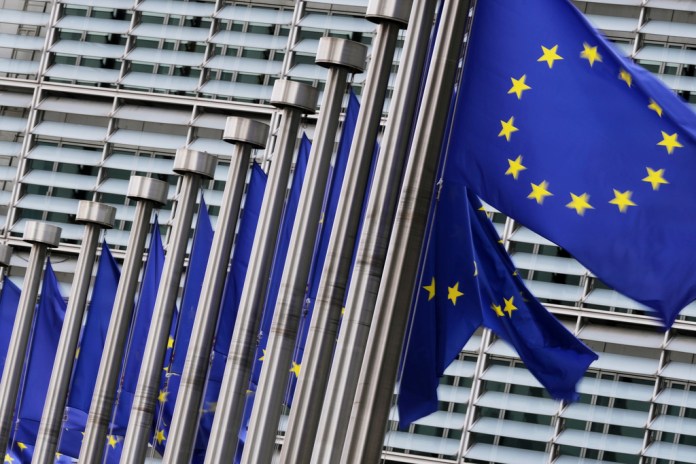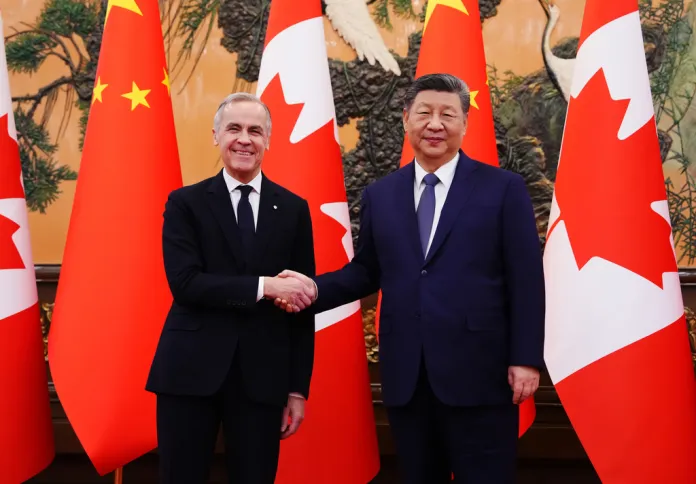China may not be able to follow through rare earths trade war threat
The article discusses China’s threat to impose global export controls on rare earth elements amid the ongoing trade war with the United States. Rare earth minerals, essential for high-tech and defense products, are predominantly sourced from China, which supplies about 80% of U.S. imports. Though, analysts argue China may struggle to enforce these controls effectively, especially the planned extraterritorial request that woudl require export licenses even for products made outside China containing Chinese minerals. Tracking and controlling such complex global supply chains would present notable logistical challenges, as China’s export control framework is still underdeveloped. While the threat serves as a leverage point in trade negotiations and has caused stock prices of non-Chinese rare earth companies to rise, experts consider China’s current ability to fully enforce the restrictions a bluff. The U.S. government remains prepared with multiple countermeasures but hopes for de-escalation, with a planned meeting between Presidents Trump and Xi Jinping anticipated to take place soon.
China may not be able to follow through rare earths trade war threat
China could find it impossible to execute its plan to impose global export controls on rare earth elements, its latest threat against the United States in the escalating trade war between the two powers.
The maneuver by China, tightening exports controls on rare earth elements, presents a major risk to the U.S. and its allies that rely on China for the minerals, which are critical to the manufacture of a range of high-tech products. It is a significant point of leverage in trade talks scheduled to take place this month, and drew a threat of major new tariffs from President Donald Trump.
Yet analysts say that it would be a challenge for China to go through with the threat, especially with the plan to enforce them extraterritorially, meaning that China’s licensing requirements could apply to products made outside China if they include Chinese-sourced minerals. The export controls themselves are set to go into effect next month, but extraterritorial enforcement would go into effect at the start of December.
BESSENT AND GREER PLAY ‘GOOD COP, BAD COP’ WITH CHINA TRADE WAR
“What it essentially means is that, let’s say a company in the Philippines exports electronics to the United States and this company in the Philippines gets access to some of these materials in order to put it in their products that they then export to the rest of the world,” said Cullen Hendrix, senior fellow at the Peterson Institute for International Economics. “They still have to get an export license for that product to send to the United States of America.”
“And if they do it in contravention, without getting that kind of license, they can imperil the entire country’s access to these resources,” Hendrix added.
Derek Scissors is a senior fellow at the American Enterprise Institute, where he focuses on the Chinese and Indian economies and on U.S. economic relations with Asia. Scissors pointed out that following all of those exports would be a challenging task for Beijing.
“It just becomes almost impossible for China to track all these shipments,” Scissors said.
Supply chains are complex, making tracking challenging. A massive bureaucratic workload would come with implementing such a regime. China has only in recent years begun trying to set up an export control framework, and its tracking and licensing mechanisms are still under development, according to a recent Morgan Stanley report.
China has dominated the rare earth market for years and accounts for about 80% of U.S. imports of rare earth metals and compounds. Demand for the metals is only growing, as clean energy products such as wind turbines and electric cars, which use the metals, become more popular.
More ominously, the controls would apply to magnets used for weapons and defense systems, such as the F-35 fighter jet, Tomahawk missiles, and radar systems.
Still, the problem for the Chinese government is that they would have to monitor not just direct shipments from China into the U.S., but also those to third-party countries, because if China didn’t have an extraterritorial element to these export controls, companies would just transship.
“You just ship them to Mexico, and then they come up to the U.S., that’s the obvious example,” he continued. “So it’s always been about the December 1 deadline and the extraterritorial element, and that is really, really tough.”
But the process would be easier for China if the companies voluntarily fall in line and start applying for export permits.
“They want firms to go along with this to give them the information necessary to enforce the controls, which they cannot do now,” Scissors said. “So that’s the play here. It’s not like tomorrow they can actually effectively block rare earth shipments, that’s a bluff, but it’s not going to be a bluff forever.”
The new export controls are a response to months of Trump pushing more protectionist trade policies and tariffs across the globe.
But the stocks of non-Chinese rare earth companies rose because of the tensions.
By Monday, MP Materials, a U.S. mining company in which the Trump administration has taken an ownership stake, was up more than 21%, while another domestic company, Energy Fuels Inc., rose 17.5%. USA Rare Earth Inc. was up more than 26%, while Critical Metals Corp surged a staggering 32%.
In the wake of the escalation, Treasury Secretary Scott Bessent said this week that the United States government has a dozen different countermeasures that it is prepared to deploy, noting that the administration hopes it doesn’t have to pull those “significant levers” and expressed optimism about de-escalation.
Bessent specifically mentioned natural resources used in the production of plastics, jet engines and related parts, and the hundreds of thousands of Chinese students studying in the U.S. as pressure points for Beijing.
THE ‘COUNTERMEASURES’ TRUMP COULD USE AGAINST CHINA IN LATEST TRADE BATTLE
Amid the dispute, Bessent said he still expects President Donald Trump to meet with Chinese President Xi Jinping in South Korea in the coming month.
“He will be meeting with party chair Xi in Korea — I believe that meeting will still be on,” Bessent said.
" Conservative News Daily does not always share or support the views and opinions expressed here; they are just those of the writer."



